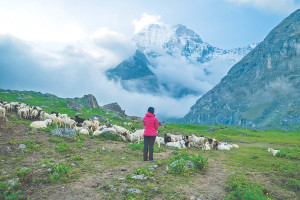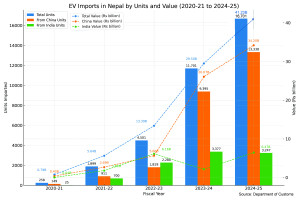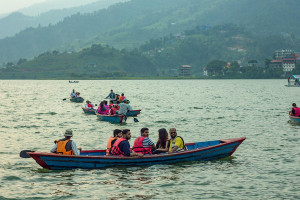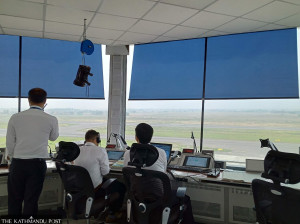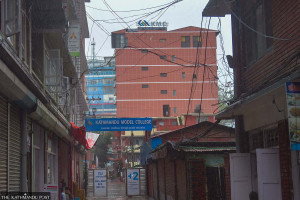Money
Police raid four shops for selling counterfeit goods
The police raided four shops in Kathmandu on July 21 at the request of the Department of Industry (DoI) following a complaint by Indian consumer goods company Hindustan Unilever that they had been selling counterfeit products bearing its brand names.
Prithvi Man Shrestha
The police raided four shops in Kathmandu on July 21 at the request of the Department of Industry (DoI) following a complaint by Indian consumer goods company Hindustan Unilever that they had been selling counterfeit products bearing its brand names.
Hindustan Unilever had registered a case on July 6 with the DoI against the shops charging them with selling fake Lakme, Dove, Nivea and other products. Hindustan Unilever is the parent company of Unilever Nepal.
The police swooped on Pawan Emporium, Roshani International and Nikita Impex at Makhan, and Anjaliwala Impex on New Road, in the heart of the capital’s business district and confiscated some goods which they handed over to the DoI.
“We are currently investigating the case. We will try to reach the real manufacturers of the alleged fake goods,” said Maheshwor Neupane, director general of the DoI.
Violation of intellectual property rights of Indian companies in Nepal is one of the issues that the Indian government frequently raises during trade negotiations between the two countries.
When Nepali and Indian commerce secretaries met in New Delhi for an Inter-Governmental Committee (IGC) meeting last June, the Indian side had complained at the registration of a company named Havells Nepal in Nepal as there was already an Indian company named Havells Group. The Nepali company, whose original name was Delta Cable and Pipe Industries, had also misled customers by printing ‘in technical cooperation with India’ on its products which is factually incorrect, India claimed.
The products made by the said Nepali company are substandard, and the Indian company has initiated legal action, according to the minutes of the IGC discussion.
Nepali officials said that Indian companies register their trademarks in Nepal only after Nepali companies have registered similar brand names. “This creates problems because trademarks are registered in Nepal on a first come, first served basis,” said Neupane.
According to him, Nepali law does not have a specific provision prohibiting the registration of any brand if it has not been registered. “However, we have been proactive in discouraging such tendencies if the brand names are well known and easily recognizable,” said Neupane.
Nepal’s business community does not see trademark violations as a widespread problem in Nepal. Umesh Lal Shrestha, chairperson of the Industry Committee of the Federation of Nepalese Chambers of Commerce and Industry (FNCCI), said that there were no big problems related to trademark infringement compared to copyright violations. He added that foreign companies were having problems with trademark infringement in Nepal beca-use of their failure to register their brands here promptly. “If they don’t register their trademark hers, it does not stop Nepalis from registering certain brands before they enter Nepal,” he said.
Meanwhile, trademark related disputes are arising among domestic manufacturers too. Recently, Swastik Oil Industry filed a case against Annapurna Vegetable Oil for trademark infringement.
According to the DoI, the highest number of cases are related to gutka and tobacco products. Likewise, a large number of trademark infringement cases involve liquor factories. Asian Distillery, Sumy, Highland Distillery and Bijaya Distillery have filed cases against various firms claiming infringement of their trademarks. According to the DoI, it received 230 new cases related to trademark infringement in the fiscal year 2015-16. There were 595 trademark violation cases pending at the DoI as of the last fiscal year.




 22.07°C Kathmandu
22.07°C Kathmandu








